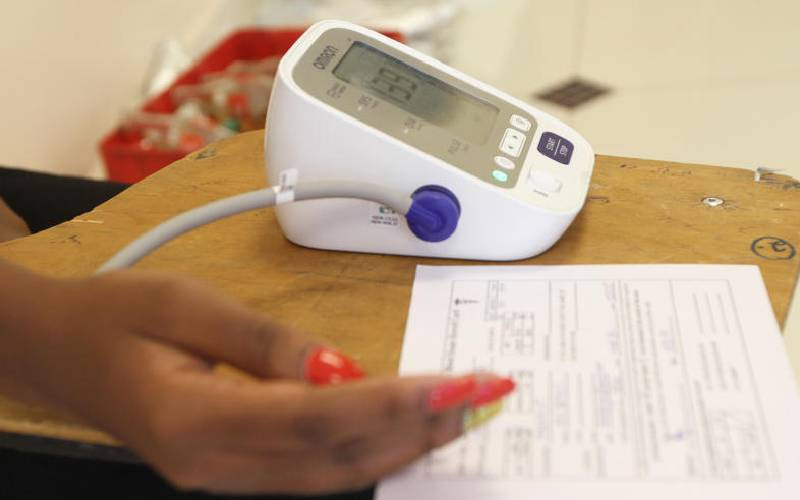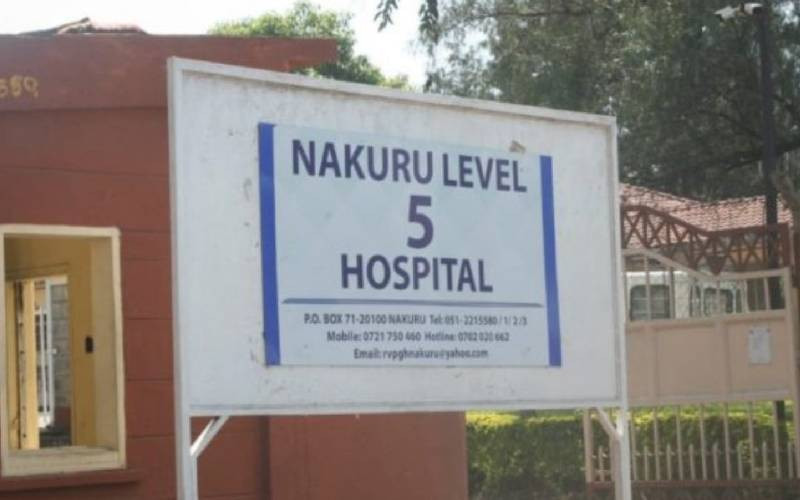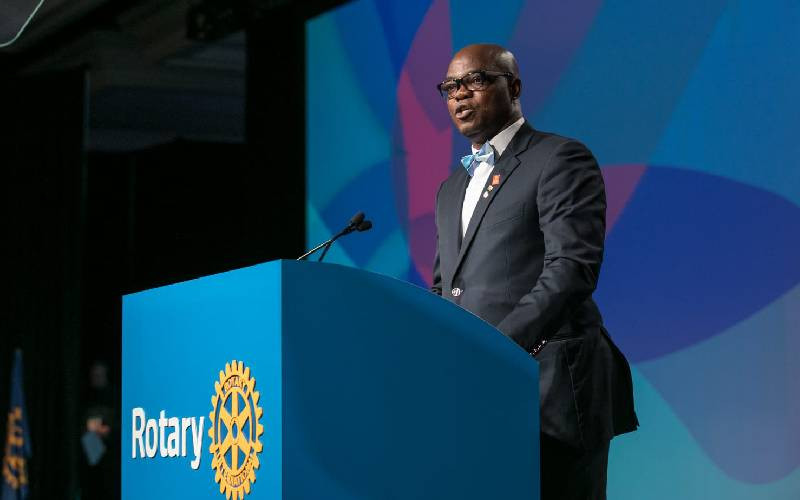
High blood pressure, or hypertension, is a leading cause of stroke, heart attacks, kidney failure and other life-threatening conditions. But for some patients, even after taking medication and making lifestyle changes, their blood pressure remains stubbornly high. This is what doctors call resistant hypertension, and it is a growing concern in Kenya and around the world.
Resistant hypertension is when a person’s blood pressure stays high despite being on at least three types of medication, one of which must be a diuretic, a drug that helps the body eliminate excess salt and water.
According to Dr Etienne Amendezo, a consultant interventional cardiologist at Aga Khan University Hospital in Nairobi, “These patients are not a small group. They make up around 15 to 20 per cent of all people with high blood pressure.”
In some cases, patients are on four or more medications and still don’t hit the target blood pressure level, typically under 140/90 mmHg, though in many settings, a tighter target of 130/80 mmHg is recommended.
There are two forms of resistant hypertension: true and pseudo. True resistant hypertension occurs when a patient consistently takes all their prescribed medications, and other potential issues such as inaccurate blood pressure readings or underlying secondary health conditions have been ruled out.
In contrast, pseudo-resistant hypertension may seem uncontrolled, but the apparent resistance is often caused by poor adherence to medication, incorrect dosing or improper techniques used when measuring blood pressure.
Dr Amendezo explains that an important part of diagnosis is ensuring blood pressure is taken properly, ideally using an ambulatory monitor that records readings over 24 hours. This helps avoid a common issue called white coat hypertension, where a patient’s blood pressure spikes in the doctor’s office due to anxiety.
Resistant hypertension is often caused by a combination of factors. One of the most common is medication non-adherence, where patients either forget or choose not to take their prescribed drugs consistently. In some cases, the issue lies in incorrect medication doses or ineffective combinations that aren’t strong enough to control blood pressure.
- Thyroid disorders: What they are and how they affect body, treatments
- A family's journey through stroke and healing
- Aga Khan banks on support group to bring hope to cancer survivors
- Epidemic in slow motion: Experts sound alarm over rise in NCDs deaths
Keep Reading
Underlying health conditions such as chronic kidney disease, blocked kidney arteries, sleep apnoea, obesity and hormonal imbalances can also make management more difficult. Additionally, sympathetic overactivity where the nerves connecting the brain and kidneys become overstimulated can cause blood pressure to rise, a mechanism now better understood thanks to recent research.
Globally, around one in three adults has high blood pressure. Dr Amendezo notes that Kenya’s situation is even more alarming. “Some surveys show that between 35 to 40 per cent of Kenyan adults are hypertensive. Yet, only about 12 to 13 per cent of them are well-controlled with medication.”
This means the vast majority of people with hypertension in Kenya are at risk of complications and up to one in five of them may have resistant hypertension. Limited access to specialists, the high cost of medication and lack of awareness contribute to this worrying trend.
Often called a ‘silent killer,’ hypertension may not show symptoms until damage is already done. However, persistently high readings especially while on treatment, should raise concern. “If your blood pressure stays above 140/90 mmHg most of the time, despite taking your meds correctly, it’s time to seek specialist help,” advises Dr Amendezo.
Managing resistant hypertension demands a comprehensive and coordinated approach. One of the first steps involves optimising medication, where doctors may adjust drug types, increase dosages or combine multiple medicines to suit the patient’s needs. Alongside this, lifestyle changes are essential. These include reducing salt intake, eating more potassium-rich foods such as bananas and oranges, exercising regularly, avoiding smoking, limiting alcohol consumption and managing stress effectively.
Accurate monitoring is also crucial. Many specialists now recommend using 24-hour ambulatory blood pressure monitors to confirm whether current treatments are effective or need to be adjusted. For patients who still struggle with uncontrolled blood pressure despite medication and lifestyle efforts, advanced procedures like renal denervation therapy are now available in specialised centres such as Aga Khan University Hospital. This procedure disrupts the overactive nerve signals between the brain and kidneys that drive persistent hypertension, offering a promising option for those who do not respond to conventional methods.
If left unmanaged, resistant hypertension significantly increases the risk of heart failure, stroke, heart attacks, kidney failure (which may eventually require dialysis or a kidney transplant), as well as cognitive decline and vision problems. Several risk factors raise the likelihood of developing resistant hypertension, including older age, obesity, pre-existing kidney disease, poor sleep quality (such as in cases of sleep apnoea), genetic predisposition and a sedentary lifestyle. Tackling these factors early can make a major difference in treatment outcomes.
The best form of prevention lies in early diagnosis, routine check-ups, and consistent follow-up. “Patients need to understand their condition and the importance of sticking to treatment,” Dr Amendezo emphasises. “Frustration won’t help, but a supportive team and consistent follow-up can make a difference.”
Resistant hypertension may sound unsettling, but with the right knowledge and care, it doesn’t have to lead to serious complications. Whether through better drug therapy, meaningful lifestyle changes or advanced interventions, what matters most is catching it early and staying committed to managing it. If your blood pressure stays high even while on treatment, don’t ignore it. It may be time to visit a specialist and take control of your health before complications take control of you.
 The Standard Group Plc is a multi-media organization with investments in media
platforms spanning newspaper print
operations, television, radio broadcasting, digital and online services. The
Standard Group is recognized as a
leading multi-media house in Kenya with a key influence in matters of national
and international interest.
The Standard Group Plc is a multi-media organization with investments in media
platforms spanning newspaper print
operations, television, radio broadcasting, digital and online services. The
Standard Group is recognized as a
leading multi-media house in Kenya with a key influence in matters of national
and international interest.











